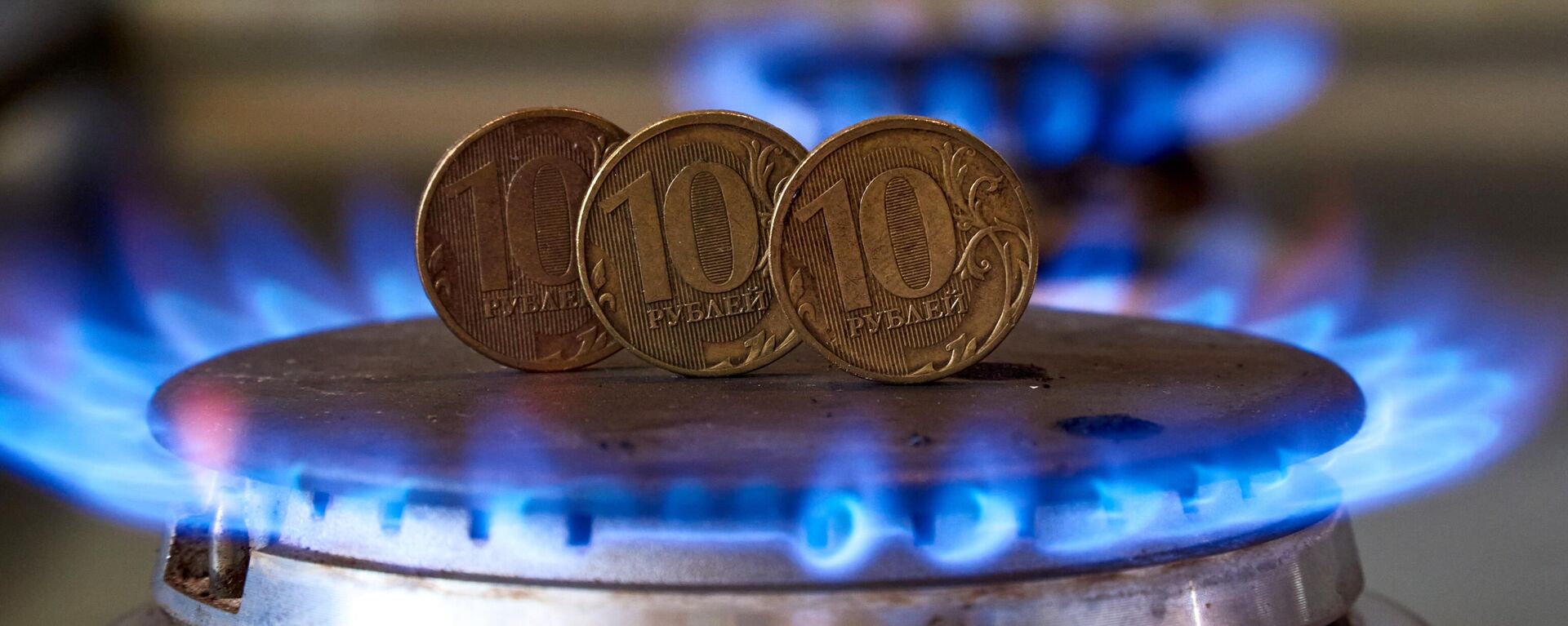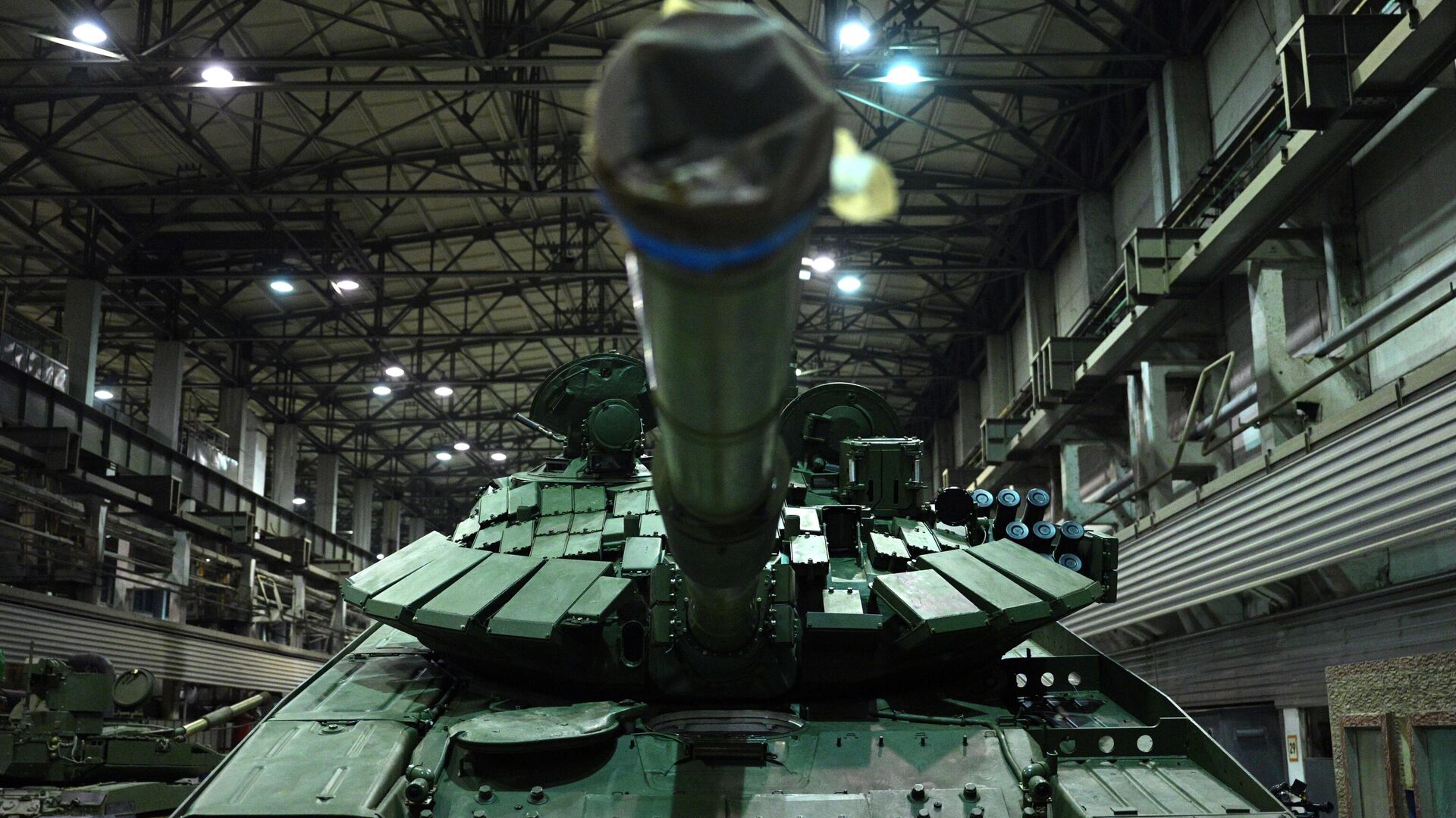https://sputnikglobe.com/20240316/russian-economy-strengthened-by-defense-spending-and-western-sanctions-1117369680.html
Russian Economy Strengthened by Defense Spending and Western Sanctions
Russian Economy Strengthened by Defense Spending and Western Sanctions
Sputnik International
Russia’s economy continues to grow and expand despite the sanctions waged against it by the collective West, with Western media outlets even being forced to grudgingly admit this fact.
2024-03-16T14:57+0000
2024-03-16T14:57+0000
2024-03-16T18:45+0000
analysis
russia
russian economy under sanctions
military
industrial
production
https://cdn1.img.sputnikglobe.com/img/07e8/03/10/1117370924_0:159:3077:1889_1920x0_80_0_0_406de4479fcc074f2b3bb412ba7da71e.jpg
While the efforts by Western powers to cripple Russia’s economy fail miserably, Moscow successfully manages to improve the wellbeing of Russian people while at the same time ramping up defense spending. According to Dr. Andrei Kolganov, a professor of economics at Moscow State University and chief researcher at the Russian Academy of Sciences’ Institute of Economics, several factors contribute to Russia’s resilience. “Those who imposed these sanctions wanted to isolate Russia from the supply of critically important products while simultaneously disrupting Russia’s exports – oil, gas, etc. – to foreign markets. This scheme has failed,” Kolganov explained. As it turned out, many countries were eager not only to continue cooperating with Russia, the researcher remarked. The Russian economy also turned out to be more resilient than anticipated by the Western powers who apparently failed to realize that Russia does not produce oil alone. Along with possessing virtually all raw materials it needs, Russia has a significant processing industrial capacity which, along with Russia’s considerable research and development capabilities, allows the country to successfully phase-out many imports, Kolganov observed. He added that the Russian military-industrial complex’s growing demand for raw material and labor also contributes to the Russian economy’s growth. Ramping up munitions production, for example, leads to an increase in production of the required metals and chemicals while a newly-hired workforce creates additional demand for consumer goods. Researching and developing new types of military hardware also increases demand for raw materials and equipment required for the associated projects, which not only leads to an increase in production but also helps advance the latter to a new technological level, the researcher suggested. The current state of the Russian economy allows Moscow to quickly ramp up its military-industrial capabilities if necessary, said Kolganov who claimed that Russia can now “respond to any challenge.”
https://sputnikglobe.com/20240229/russian-energy-exports-to-china-india-key-to-thwarting-us-sanctions---ex-imf-official-1117048506.html
russia
Sputnik International
feedback@sputniknews.com
+74956456601
MIA „Rossiya Segodnya“
2024
Sputnik International
feedback@sputniknews.com
+74956456601
MIA „Rossiya Segodnya“
News
en_EN
Sputnik International
feedback@sputniknews.com
+74956456601
MIA „Rossiya Segodnya“
Sputnik International
feedback@sputniknews.com
+74956456601
MIA „Rossiya Segodnya“
russian economy sanctions, russian economy growth, russian defense industry
russian economy sanctions, russian economy growth, russian defense industry
Russian Economy Strengthened by Defense Spending and Western Sanctions
14:57 GMT 16.03.2024 (Updated: 18:45 GMT 16.03.2024) Russia’s economy continues to grow and expand despite the sanctions waged against it by the collective West, with Western media outlets even being forced to grudgingly admit this fact.
While the
efforts by Western powers to cripple Russia’s economy fail miserably, Moscow successfully manages to improve the wellbeing of Russian people while at the same time ramping up defense spending.
According to Dr. Andrei Kolganov, a professor of economics at Moscow State University and chief researcher at the Russian Academy of Sciences’ Institute of Economics, several factors contribute to Russia’s resilience.
“Those who imposed these sanctions wanted to isolate Russia from the supply of critically important products while simultaneously disrupting Russia’s exports –
oil, gas, etc. – to foreign markets. This scheme has failed,” Kolganov explained.
As it turned out, many countries were eager not only to continue cooperating with Russia, the researcher remarked.
“Therefore, the West overestimated its influence on the global economy as well as its ability to isolate Russia,” Kolganov surmised.
The Russian economy also turned out to be more resilient than anticipated by the Western powers who apparently failed to realize that Russia does not produce oil alone.
Along with possessing virtually all raw materials it needs, Russia has a significant processing industrial capacity which, along with Russia’s considerable research and development capabilities, allows the country to successfully phase-out many imports, Kolganov observed.

29 February 2024, 03:05 GMT
He added that the Russian military-industrial complex’s growing demand for raw material and labor also contributes to the Russian economy’s growth.
Ramping up munitions production, for example, leads to an increase in production of the required metals and chemicals while a newly-hired workforce creates additional demand for consumer goods.
Researching and developing new types of military hardware also increases demand for raw materials and equipment required for the associated projects, which not only leads to an increase in production but also helps advance the latter to a new technological level, the researcher suggested.
The current state of the Russian economy allows Moscow to quickly ramp up its military-industrial capabilities if necessary, said Kolganov who claimed that Russia can now “respond to any challenge.”
“Currently, the Russian military-industrial complex does not become a burden for the Russian economy but instead acts as a catalyst for the advancement of the related industries,” he said.



